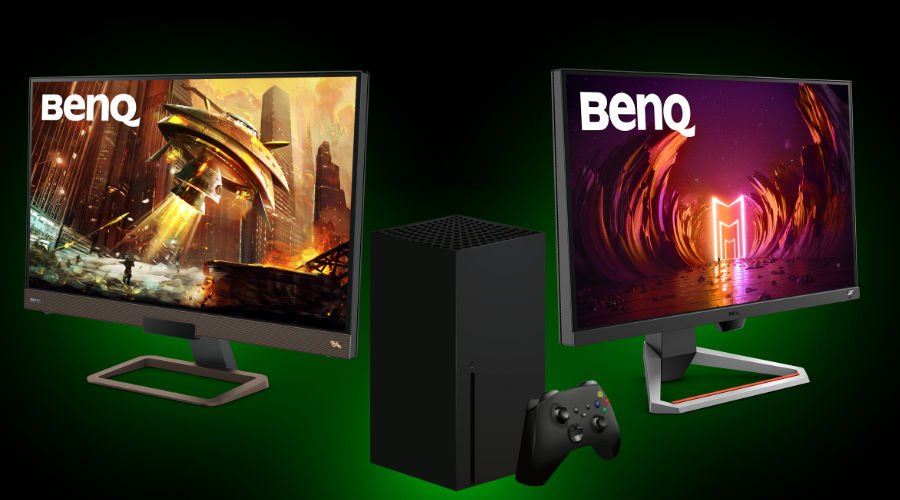Projectoren
Monitoren
Verlichting
Interactieve Displays | Signage
Werken & leren op afstand
Store
BenQ Nederland respecteert uw privacy. Wij gebruiken cookies en soortgelijke technologieën om ervoor te zorgen dat u de beste ervaring krijgt wanneer u onze website bezoekt. U kunt deze cookies accepteren door te klikken op "Cookies accepteren", of klik op "Alleen noodzakelijke cookies" om alle niet-essentiële technologieën te weigeren. U kunt uw cookie-instellingen te allen tijde aanpassen. Bezoek voor meer informatie ons Cookiebeleid en Privacybeleid.
Sommige essentiële toepassingen op de BenQ-sites werken gewoon niet zonder cookies. En als andere cookies gedeactiveerd zijn, kan dat van aanzienlijke invloed zijn op de manier waarop u van onze services gebruik kunt maken.
Controleer uw onderstaande cookie-instellingen en activeer degene die u het best van pas komen.
“Strikt noodzakelijke” cookies kunnen niet worden gedeactiveerd, maar functionele cookies en prestatiecookies kunt u hieronder deactiveren. Meer informatie over cookies en wat ze doen vindt u op onze andere pagina's.
Als u ervoor heeft gekozen cookies van derden in uw browser te blokkeren, worden uw voorkeursinstellingen voor cookies niet doorgegeven van benq.eu aan benq.xx en vice versa. Zorg ervoor uw voorkeuren voor cookies op beide plaatsen in te stellen.
On
Deze cookies zijn essentieel voor navigeren op de website en gebruik van de toepassingen. Zonder deze cookies kunnen bepaalde services waarom u heeft gevraagd niet worden geleverd.
On
Off
Deze cookies stellen de website in staat de door u gemaakte keuzes te onthouden. De site functioneert zo beter en kan aan u persoonlijk worden aangepast.
On
Off
Deze cookies helpen de prestaties van BenQ te verbeteren. Als u advertentiecookies wilt weigeren, deactiveer dan de prestatiecookies.
BenQ Nederland respecteert uw privacy. Wij gebruiken cookies en soortgelijke technologieën om ervoor te zorgen dat u de beste ervaring krijgt wanneer u onze website bezoekt. U kunt deze cookies accepteren door te klikken op "Cookies accepteren", of klik op "Alleen noodzakelijke cookies" om alle niet-essentiële technologieën te weigeren. U kunt uw cookie-instellingen te allen tijde aanpassen. Bezoek voor meer informatie ons Cookiebeleid en Privacybeleid.
Duik in de feestelijke sfeer met onze lopende Eindejaars-aanbiedingen in de BenQ Store!
Bekijk al onze Eindejaars-aanbiedingen hierProjectoren
Monitoren
Verlichting
Interactieve Displays | Signage
Werken & leren op afstand
Store
Projectoren
Monitoren
Verlichting
Interactieve Displays | Signage
Werken & leren op afstand
Store
The answer to this quandary depends on your situation. If you already have a good 144Hz gaming monitor, then the 13% increase in max framerate isn’t necessarily worth an upgrade. But if you’re in the market for a high refresh rate gaming monitor and want to choose between a 144Hz and a 165Hz model, then we say go with the latter. That’s because 165Hz is becoming the new 144Hz, or the middle ground between 60Hz and really high frame rates like 240Hz and 360Hz. Being a newer standard means with 165Hz monitors you’re more likely to get improved panels, better color accuracy, better HDR, and faster response. Given the choice, go with 165Hz.

Gaming monitor manufacturers always look for ways to increase refresh rates to support ever-faster games and more powerful graphics cards. Incremental steps have the advantage of offering refresh rates that many GPUs can actually benefit from. A graphics card that can run games at 1080p 144Hz or 1440p 144Hz will easily do the same at 165Hz, but may struggle with a major step-up like 240Hz. So, in effect 165Hz is gaining popularity as a possible replacement for 144Hz. The move from 144Hz to 165Hz doesn’t even require entirely new panel technology. Many manufacturers find that a lot of 144Hz panels can easily be tuned to offer native 165Hz without risky or unstable overclocking. Thus, this is a win-win scenario. For manufacturers, this provides the chance to offer faster panels without costly development. For gamers, that’s extra frames per second for effectively the same price as 144Hz monitors, so why not? A similar situation existed in the past with 90Hz and 100Hz panels that improved on 60Hz monitors. Sure, the difference in frame rates wasn’t night and day, but again – why not? If you can get more refresh for the same money, you should go for it.
We just mentioned the most obvious benefit above. A little bit more frames without breaking the bank. Will you be able to tell the difference between 144 and 165 frames per second? Most likely not, if we’re being honest. But any game running at 165Hz will be smoother than 144Hz, even if you don’t overtly perceive the difference. In competitive gaming, even a 13% increase in frame rate is something.
In 1080p, that’s a definite yes. For 1440p, it varies by the quality of the cable and graphics card drivers. Generally, HDMI 2.0 can even do 4K 120Hz with reduced color depth and lower quality chroma subsampling. So 1440p in 165Hz is doable if you lower color depth to 8-bit and also set chroma subsampling to 4:2:2 or 4:2:0. But the thing with 165Hz monitors is that they’re newer and therefore may have HDMI 2.1 included. Even if they don’t have HDMI 2.1, you can still enjoy 1080p 165Hz. And because this refresh rate is primarily aimed at multiplayer and competitive gaming, 1080p should be more than enough for the experience you want. If you’re into single player games and prioritize resolution and graphics settings, we recommend a good 4K 60Hz monitor.
Thanks for your feedback!
Schrijf je in voor de Nieuwsbrief
Blijf op de hoogte van productlanceringen, nieuws en exclusieve voordelen.
Schrijf je in!


